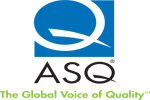“The critical role of manufactured goods is shown by the fact that they accounted for 62% of total exports in November,” says Frank Vargo, NAM’s vice president of international economic affairs. “The improvement in the manufactured goods trade balance accounted for virtually all of the $700 million November gain.
“November marked the 13th consecutive month that the growth of manufactured goods exports outpaced growth in imports, which is good news,” Vargo says. November 2006 manufactured goods exports were up 15% from November 2005, while manufactured goods imports were up 10%. Manufactured exports were paced by a 20% increase in exports of advanced technology products. All other manufactured goods exports were up 12%.
Looking at trade for the year-to-date, NAM said the January to November 2006 manufactured goods deficit was $486 billion. More than 80% of the deficit, or $404 billion, was with Asia, and $222 billion of that was with China. “Our exports to China are growing at a blistering 31% pace,” says Vargo. “However, it will take that rate or better, along with a realistic currency valuation and more market access, to begin making significant headway against the deficit with China.”
Elsewhere, the deficits with both North American Free Trade Agreement (NAFTA) and the European Union shrunk in 2006 as the manufactured goods deficit with NAFTA through November 2006 was $34 billion, down about $2 billion from the comparable period of 2005. “While NAFTA accounts for nearly 40% of our exports, it is only 7% of the deficit,” Vargo says. “This illustrates the positive impact of free trade agreements.”
The manufactured goods deficit with the European Union through November was $87 billion-down about $5 billion from 2005. “While still small, the shrinkage in our manufactured goods deficit with the European Union is the first improvement in our bilateral manufactures trade in 10 years,” Vargo says. “In part this reflects the return of the euro to more normal levels against the dollar.”


